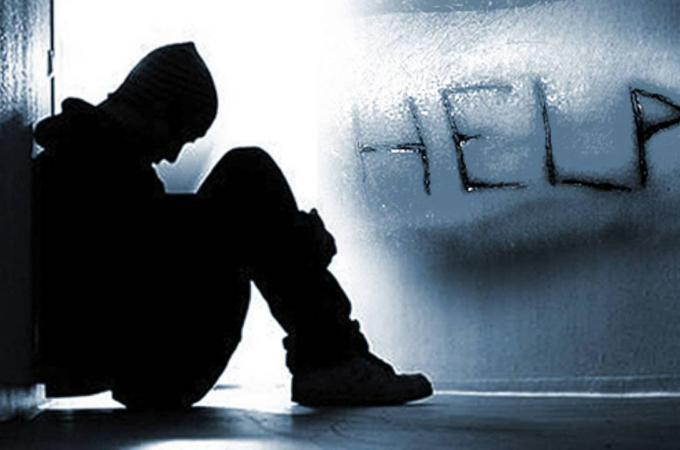Suicide -- Redeeming the Memory of a Loved One
One year ago, virtually everyone who knew him was stunned by the suicide death of the most prominent American Hispanic theologian that we have produced up to now, Virgilio Elizondo. Moreover, Virgil wasn't just a very gifted, pioneering theologian, he was also a beloved priest and a warm, trusted friend to countless people. Everyone dies, and the death of a loved one is always hard, but it was the manner of his death that left so many people stunned and confused. Suicide! But he was such a faith-filled, sensitive man. How could this be possible?
And those questions, like the muddy waters of a flood, immediately began to seep into other emotional crevices, leaving most everyone who knew him with a huge, gnawing question: What does this do his work, to the gift that he left to the church and to the Hispanic community? Can we still honor his life and his contribution in the same way as we would have had he died of a heart attack or cancer? Indeed, had he died of a heart attack or cancer, his death, though sad, would undoubtedly have had about it an air of healthy closure, even of celebration, that we were saying farewell to a great man we had had the privilege to know, as opposed to the air of hush, unhealthy quiet, and unclean grief that permeated the air at his funeral.
Sadly, and this is generally the case when anyone dies by suicide, the manner of that death becomes a prism through which his or her life and work are now seen, colored, and permanently tainted. It shouldn't be so, and it's incumbent on us, the living who love them, to redeem their memories, to not take their photos off our walls, to not speak in guarded terms about their deaths, and to not let the particular manner of their deaths color and taint the goodness of their lives. Suicide is the least glamorous and most misunderstood of all deaths. We owe it to our loved ones, and to ourselves, to not further compound a tragedy.
So each year I write a column on suicide, hoping it might help produce more understanding around the issue and, in a small way perhaps, offer some consolation to those who have lost a loved one in this way. Essentially, I say the same things each year because they need to be said. As Margaret Atwood once put it, some things need to be said and said and said again, until they don't need to be said any more. Some things need still to be said about suicide.
What things? What needs to be said, and said again and again about suicide? For the sake of clarity, let me number the points:
1. First, in most cases, suicide is the result of a disease, a sickness, an illness, a tragic breakdown within the emotional immune system or simply a mortal biochemical illness.
2. For most suicides, the person dies, as the does the victim of any terminal illness or fatal accident, not by his or her own choice. When people die from heart attacks, strokes, cancer, and accidents, they die against their will. The same is true in suicide.
3. We should not worry unduly about the eternal salvation of a suicide victim, believing (as we used to) that suicide is the ultimate act of despair. God's hands are infinitely more understanding and gentler than our own. We need not worry about the fate of anyone, no matter the cause of death, who leaves this world honest, over-sensitive, over-wrought, too bruised to touch, and emotionally-crushed, as is the case with most suicides. God's understanding and compassion exceed our own. God isn't stupid.
4. We should not unduly second-guess ourselves when we lose a loved one to suicide: What might I have done? Where did I let this person down? What if? If only I'd been there at the right time! Rarely would this have made a difference. Most of the time, we weren't there for the very reason that the person who fell victim to this disease did not want us to be there. He or she picked the moment, the spot, and the means precisely so we wouldn't be there. Suicide seems to be a disease that picks its victim precisely in such a way so as to exclude others and their attentiveness. This is not an excuse for insensitivity, but is a healthy check against false guilt and fruitless second-guessing. Suicide is a result of sickness and there are some sicknesses which all the love and care in the world cannot cure.
5. Finally, it's incumbent upon us, the loved ones who remain here, to redeem the memory of those who die in this way so at to not let the particular manner of their deaths become a false prism through which their lives are now seen. A good person is a good person and a sad death does not change that. Nor should a misunderstanding.
Oblate Father Ron Rolheiser, theologian, teacher, and award-winning author, is President of the Oblate School of Theology in San Antonio, TX. He can be contacted through his website www.ronrolheiser.com. ?Now on Facebook www.facebook.com/ronrolheiser
- Oblate Father Ron Rolheiser, theologian, teacher, and award-winning author, is President of the Oblate School of Theology in San Antonio, TX. He can be contacted through his website www.ronrolheiser.com.
Now on Facebook www.facebook.com/ronrolheiser



















